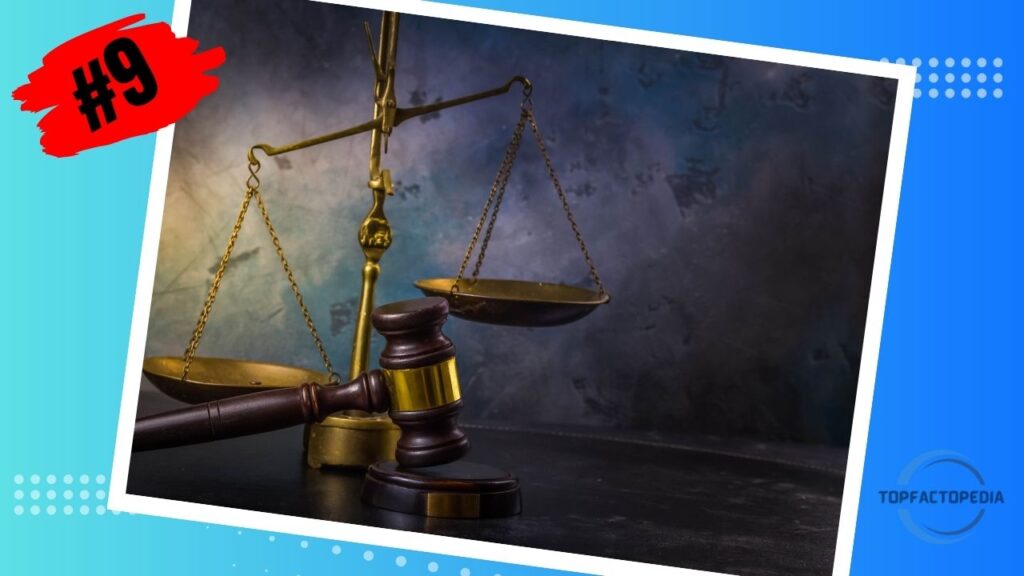
Introduction
In the world of military operations, discipline and order are important to keep the armed forces working well and staying together. Over the years, there have been some controversial army punishments that have changed the way the military does things.
These punishments, which have often led to debates and discussions, have changed how military organizations work and led to major policy changes. In this article, we’ll look at the ten most controversial army punishments that have changed military policy for good.
List of Army Punishments
10. The Case of Private Jones: A Watershed Moment

One of the most important things that led to a change in military policy was what happened to Private Jones, who was badly beaten up during training. This event shed light on the problem of hazing and caused the military to think again about how they feel about it. So, it became illegal to hurt recruits physically as a form of punishment. This led to a big change in how the military taught new soldiers.
You may also like: 10 Most Successful Generals Of All Time
9. The Unfortunate Case of Sergeant Johnson: A Turning Point

Sergeant Johnson’s case brought to light a major problem with the military justice system: a lack of openness and responsibility. After looking into his case, it was found that there were flaws in the way he was disciplined, which led to an unfair punishment. Because of this event, reforms were made to make sure that the military justice system was fair and unbiased. These reforms emphasized the importance of due process and the protection of individual rights.
8. Addressing Racial Discrimination: The Story of Lieutenant Davis

As an African-American officer, Lieutenant Davis had to deal with racism and discrimination in the military. His case led to change because it showed how common racial bias was in the armed forces. The event led to the creation of comprehensive anti-discrimination policies and diversity training programs, whose goals were to get rid of racial discrimination and make the military more open to everyone.
7. The Infamous Abu Ghraib Scandal: Lessons Learned

The Abu Ghraib scandal, in which U.S. military personnel mistreated and tortured prisoners, sent shock waves around the world. This situation showed how important it is to follow moral rules and respect the rights of prisoners of war. The investigations and inquiries that followed led to a full review of interrogation techniques and the creation of stricter rules to keep this from happening again.
6. Challenging the “Don’t Ask, Don’t Tell” Policy: Corporal Anderson’s Battle

The “Don’t Ask, Don’t Tell” policy got a lot of attention because of Corporal Anderson’s case. As a service member who was openly gay, he fought against the rule that said LGBTQ+ people couldn’t serve openly in the military. The policy was finally changed after a long legal battle and public debate. This was a big step forward in the fight for LGBTQ+ rights in the military.
Watch Web Story on this: 10 Most Controversial Army Punishments That Changed Military Policies Forever
5. Combating Violent Assault: A Commitment to Change

Violent assaults in the military led to a serious look at the problem and a promise to fix it. Because more people are becoming aware of and talking about how common violent assault is, more steps have been taken to help victims and hold offenders accountable. The military changed its policies to put more emphasis on prevention, ways to report abuse, and services to help survivors.
4. Breaking the Silence: Post-Traumatic Stress Disorder (PTSD)

Armed conflict has a big effect on mental health, especially in the form of Post-Traumatic Stress Disorder (PTSD). This has led to big changes in the way the military operates. The punishments for soldiers with PTSD were looked at again, and the focus shifted to giving them the help and resources they needed to get better. This change shows that people have learned more about how war affects people’s minds and how important it is for service members to be mentally healthy.
3. Questioning the Rules of Engagement: The Case of Sergeant Thompson

Sergeant Thompson’s case showed how complicated and difficult the rules of engagement in modern warfare can be. Even though his actions were thought to be necessary for the safety of his unit, he was at first punished for them. But this event led to a discussion about the rules of engagement, which led to a review and change of the rules to better fit the changing nature of war.
You may also like: 10 Most Powerful & Greatest Muslim Leaders in History
2. Transparency and Whistleblower Protection: The Manning Controversy

What happened to Private When Chelsea Manning gave out classified information to the public, she raised important questions about how the military handles transparency and how whistleblowers are protected. Though Manning was initially punished harshly for what he did, the event led to conversations about the balance between national security and the public’s right to know. Because of this, policies were changed to make it easier to report wrongdoing and protect whistleblowers.
1. Addressing the Mental Health Stigma: Sergeant Roberts’ Story

Sergeant Roberts’ struggles with his mental health and the punishments he got for them show how the military treats mental health problems with shame. This event woke people up and caused a change in attitudes and policies about how to help service members with mental health issues. The focus shifted from punishment to giving people access to counseling, therapy, and other resources to deal with mental health problems.
Conclusion
This article looks at the ten most controversial army punishments. These punishments have left an indelible mark on military policies, causing changes that have made the military more fair, inclusive, and accountable. These events show how important it is for the military to keep getting better, to be open, and to protect the rights of each person. We can try to make a better future for those who serve our countries by learning from the mistakes of the past.
Few More Queries
Q: What role did public opinion play in shaping military policies after these punishments?
A: Public opinion and media coverage did a lot to bring attention to the unfairness and problems in the military. The public’s outrage and calls for accountability forced military leaders to deal with these problems, which led to reforms and changes in policy.
Q: How did these punishments impact the morale and effectiveness of the armed forces?
A: At first, these punishments might have made some service members upset and unhappy. But the reforms and changes that were made afterward to make the military more fair and inclusive have helped improve morale and effectiveness in the long run.
Q: What can we learn from these controversial army punishments?
A: These punishments show us how important it is for the military to have a culture of accountability, fairness, and respect. They remind us that policies need to be evaluated and made better all the time to fix systemic problems and protect the health and safety of service members.



